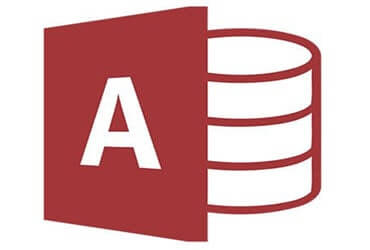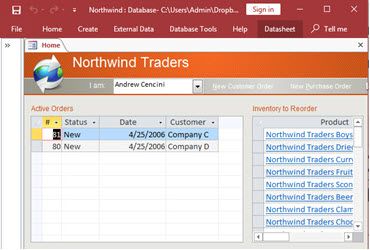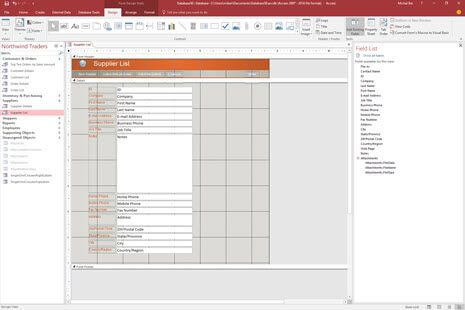
MS Access As A Dev Tool
Access continues to be a highly efficient tool for business database development.
Don't let a broken database ruin your Burbank business. We repair broken databases,
program custom Microsoft Access databases, convert Excel to Access, and upgrade old
Access databases to the latest version. Call (323) 285-0939 now for a FREE consultation.
The Best Microsoft Access Database Solutions owner, consultant, and principal programmer is Alison Balter - a recognized expert Microsoft Access consultant. Alison is the author of 15 Microsoft Access training books and videos. She is a frequent guest speaker at MS Access conferences and has developed hundreds of applications for businesses of all types.
We know your business data is important; we listen to your concerns, ask questions, and gather information from all stakeholders. We discuss your needs and requirements for your database. We find out what you want, why you need various features so we can obtain as much information as possible. Once we have the information we need, we work with you to design the proper database architecture, plus the dashboards, the questions (queries), forms, and reports you need for an excellent database system.

We also create websites designed for speed to display your data accurately, using ASP.NET technology. Fast, secure, and robust, our ASP.NET websites and web applications give you true business tool for finding and displaying information dynamically on the web.








Access continues to be a highly efficient tool for business database development.

How to create a Microsoft Access application with some unique tips and tricks.

Your Access developer near me has some great info for you about using Access efficiently.
Have you ever used Microsoft Access software? If you have, then you are in good company. Microsoft Access is one of the most popular and widely-used database management systems on the market today. What many people don't know about this software is that it has a long history behind it. Here's a bit of Microsoft Access history so that next time you open up your favorite database program, you can appreciate its rich past!
In 1994, two years after Access was released to the general marketplace, Microsoft realized that Access was a great environment for serious programmers. However, much of the hardware available at that time was not powerful enough to run Access. Microsoft came out with definite hardware specifications and hardware vendors responded positively. Microsoft specified the minimum hardware requirements for Access v2.0 as: Microsoft Windows v3.1 with 4 MB of RAM required, 6 MB RAM recommended; 8 MB of available hard disk space required, 14 MB hard disk space recommended. In 1994, Micrsoft Access shipped on seven 1.44 MB diskettes.
As a part of the Microsoft Office 4.3 Professional with Book Shelf, Microsoft Access 2.0 included the sample "NorthWind Trader" database, which covered a large number helpful training for Access database programmers. The Northwind Traders sample first introduced the Main Switchboard features new to Access 2.0 for 1994. We were already programming with Access in 1994. As professional programmers, we were happy to see the Northwind Trader database. We found it very helpful for all members of our Access programmer team to have this very useful tool.
The following are some important features of Access compared with other databases:
When you need an expert Access programmer for your Burbank, California, business contact us at (323) 285-0939. We've been working as an Access database programmer since Verion 1. We have experience in many industries, including U.S. Military, government agencies, insurance, horticulture, hostpitals, universities, medical profession, and human resources.
Get more information about our Microsoft Access programming sevices on the Microsoft Access Programmer Calabasas, California web page.
Answer: Microsoft Access has a 2GB database size limit and supports maximum 255 concurrent users, though practical limits are typically 10-20 users for optimal performance. Access lacks advanced security features found in enterprise databases, has limited web-based capabilities, and requires Microsoft Office licensing. For businesses expecting rapid growth or requiring extensive web integration, these limitations may necessitate migration to SQL Server or cloud-based solutions.
Answer: Businesses should consider upgrading to SQL Server when their Access database approaches the 2GB size limit, requires more than 20 concurrent users, needs enhanced security features, or experiences performance issues. SQL Server also becomes necessary for web-based applications, advanced reporting requirements, or integration with enterprise systems. The hybrid approach using SQL Server backend with Access frontend often provides the best transition path.
Answer: Yes, Microsoft Access can integrate with modern cloud services through several methods. Access 2024 includes improved Power Platform integration and Dataverse connectivity. You can connect Access to SharePoint lists, integrate with Office 365 services, use REST APIs for web service connections, and export data to Power BI for advanced analytics. However, Access itself remains primarily a desktop application rather than a web-based solution.